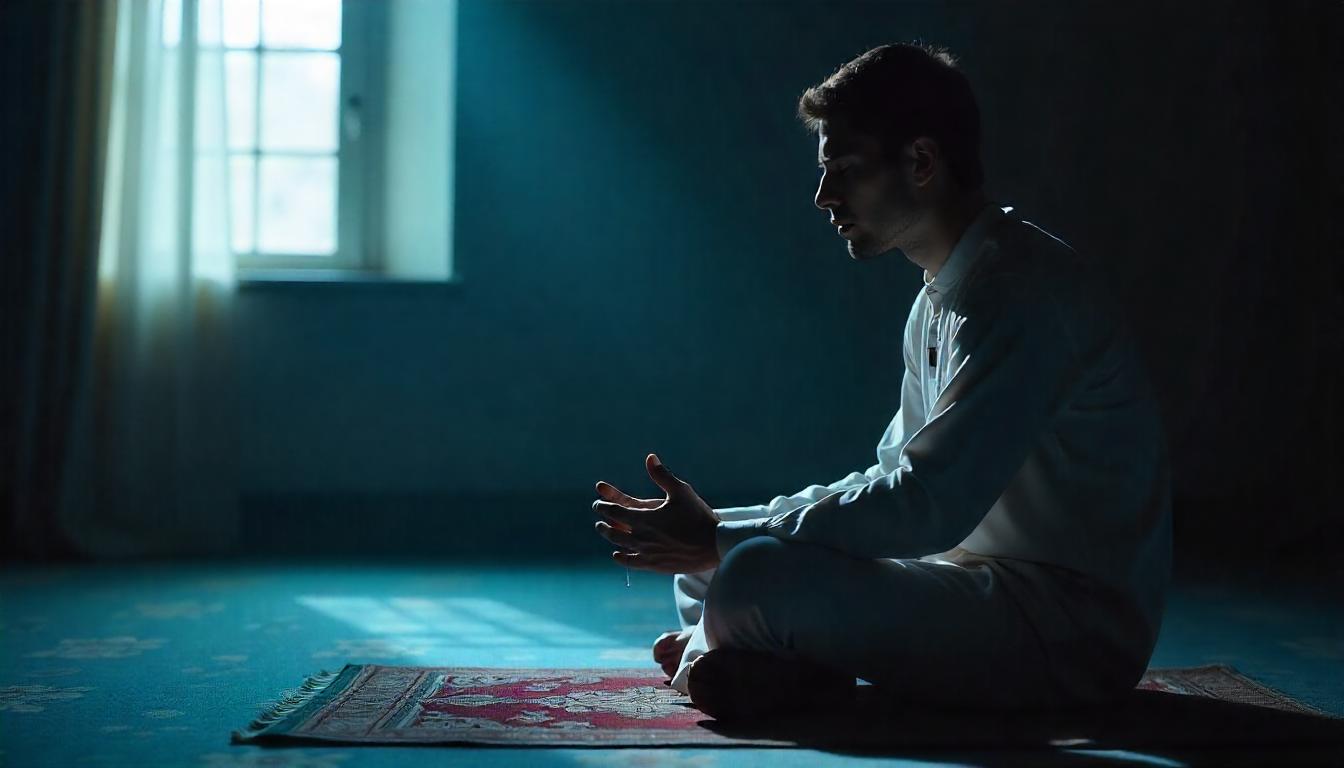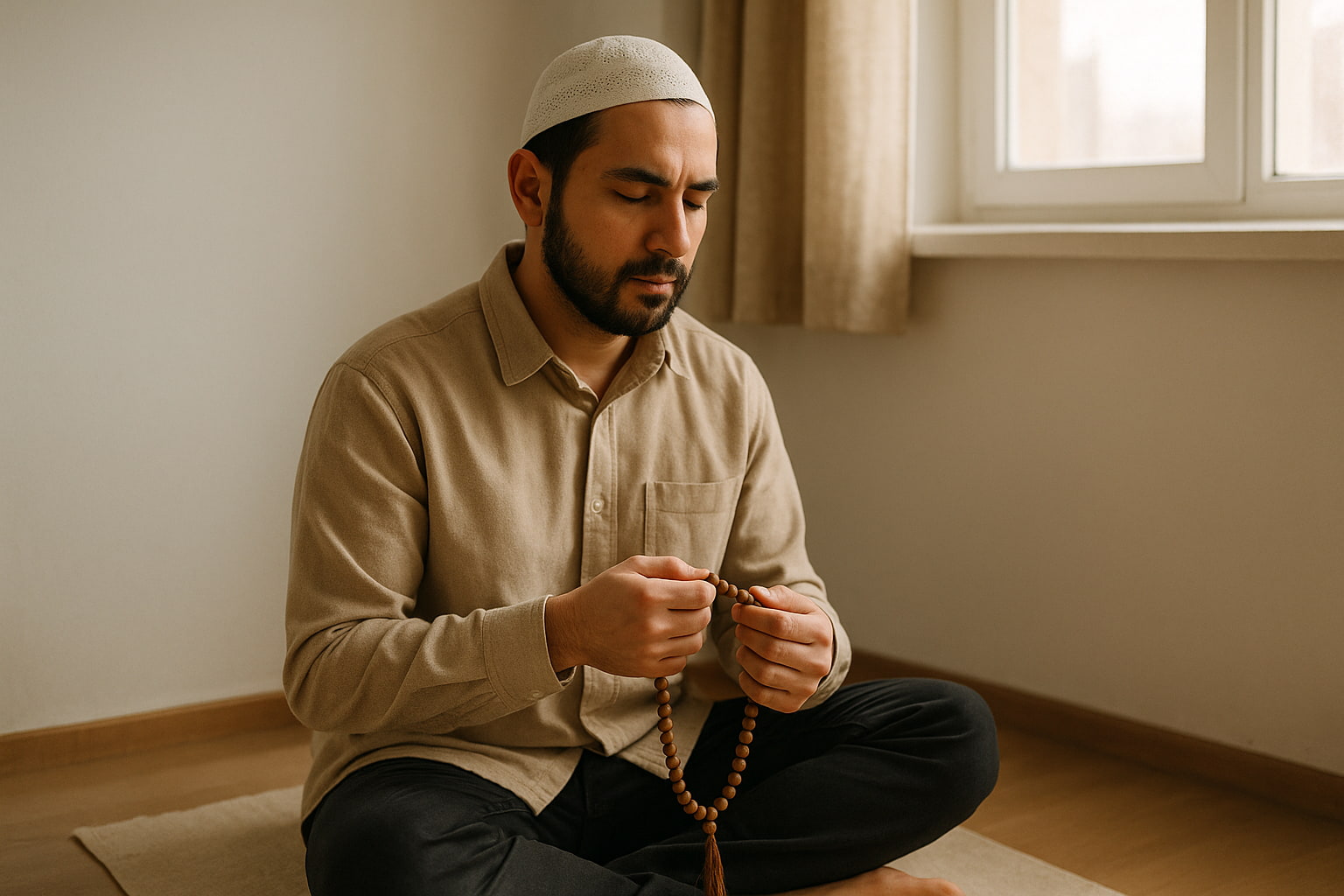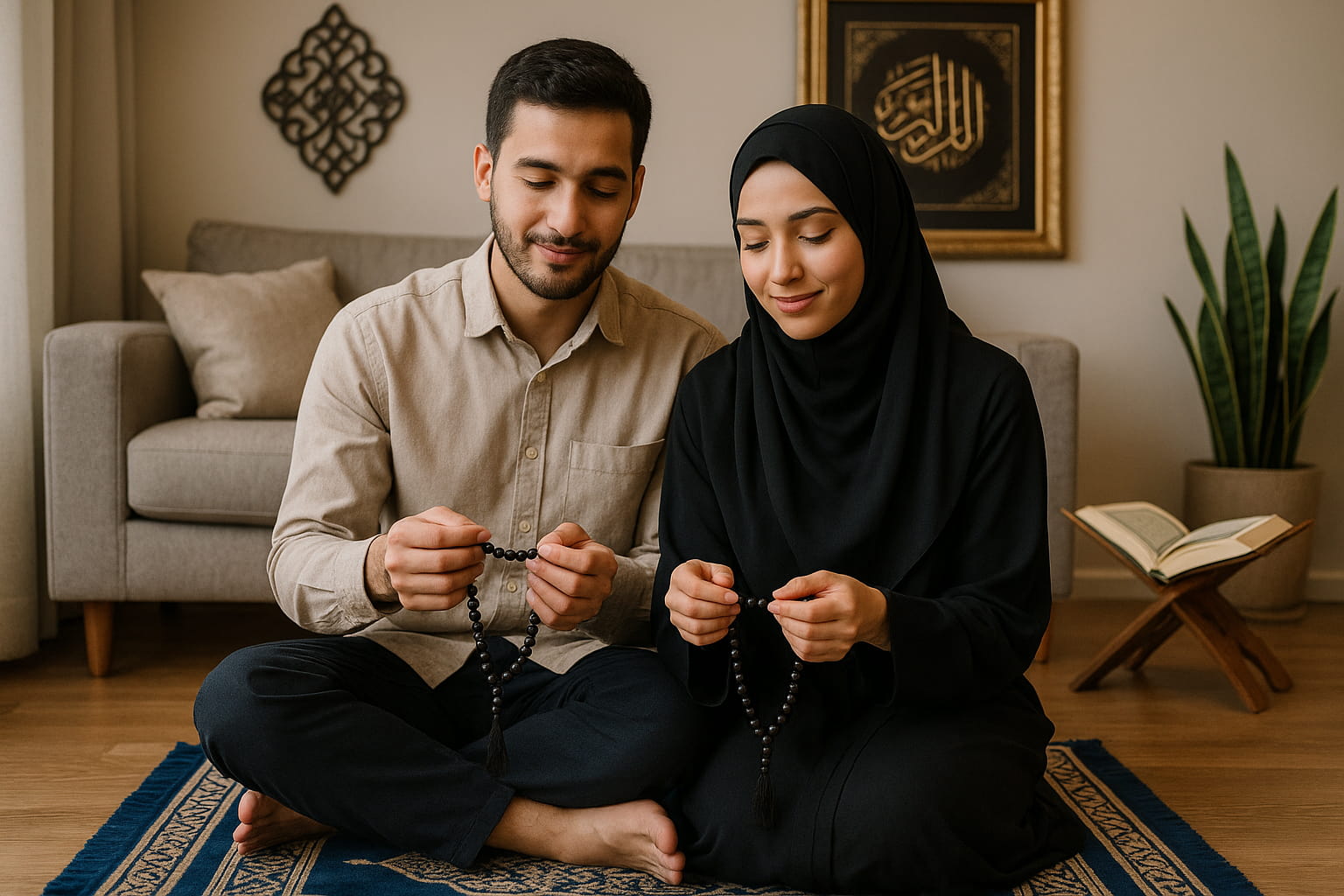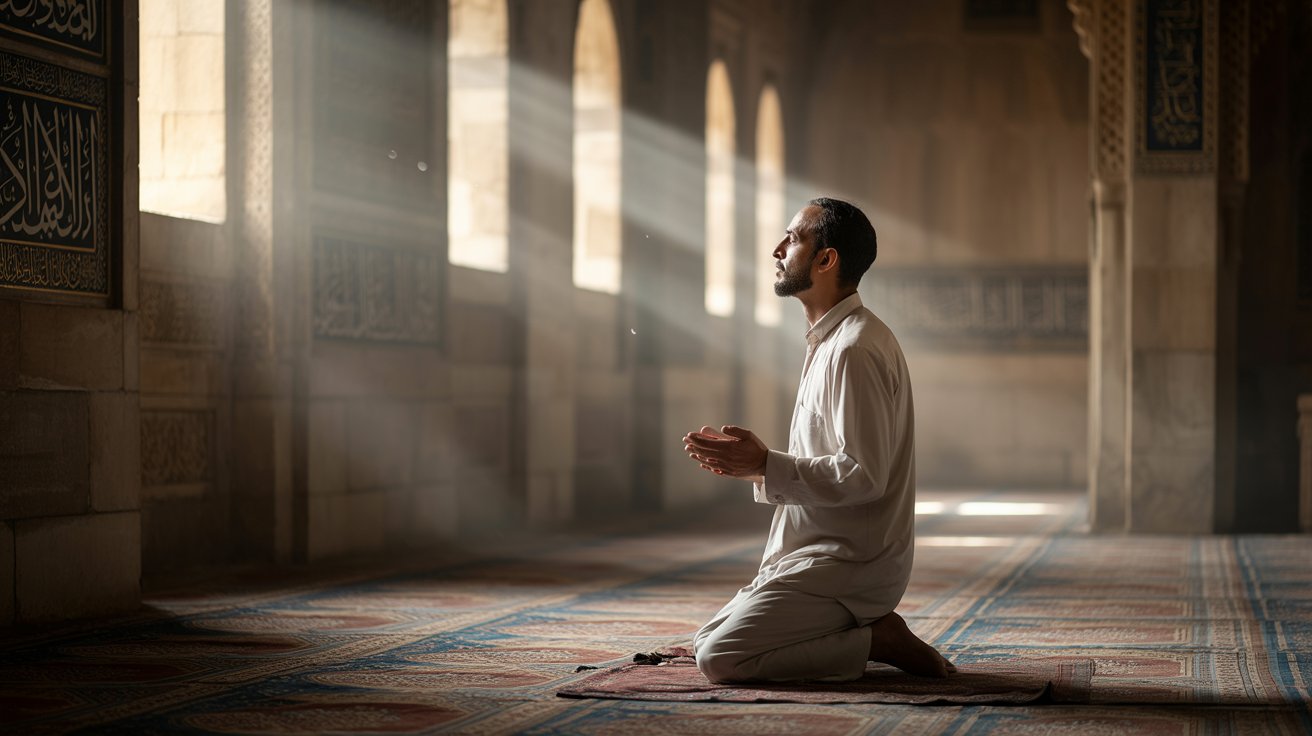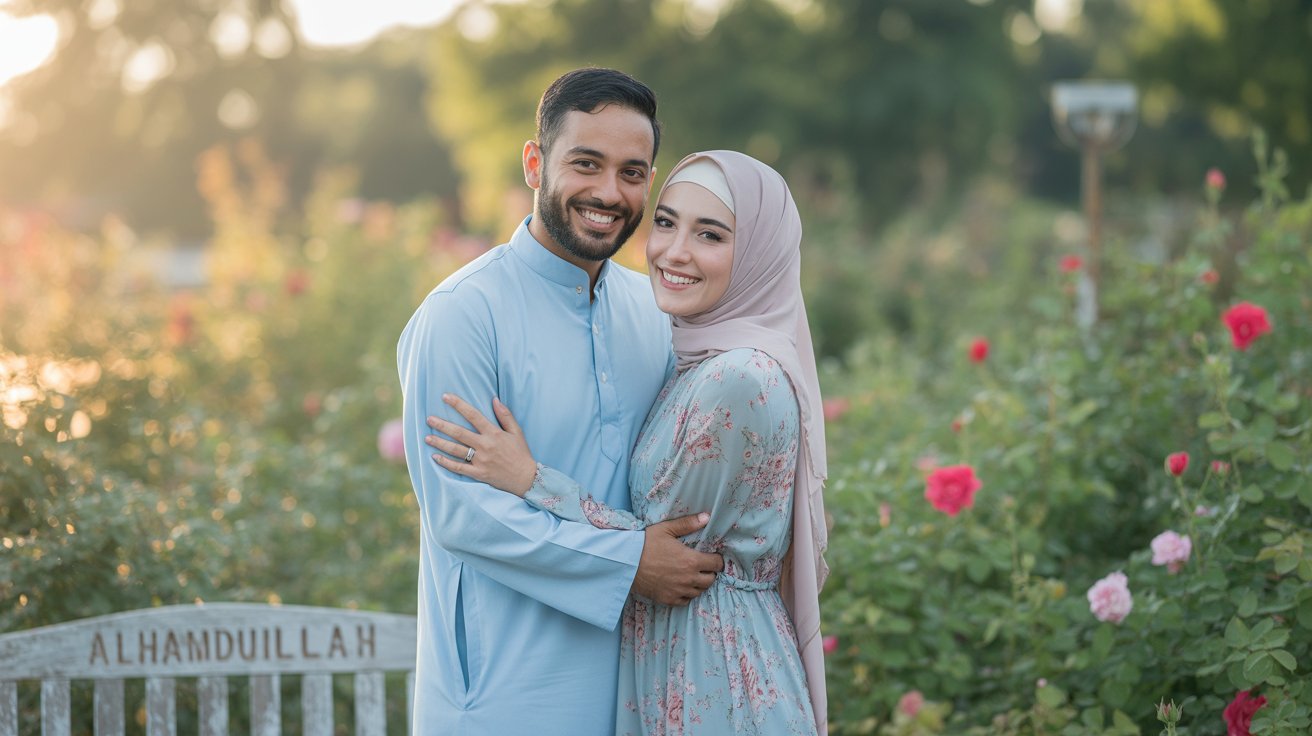Childhood trauma leaves an imprint on our hearts and minds, shaping how we interact with the world as adults. For many, these experiences lead to emotional scars that feel difficult to overcome. But healing is not beyond reach. Islam, in its wisdom and mercy, provides a holistic approach to dealing with emotional pain and trauma, offering spiritual, emotional, and practical tools to mend what was once broken.
This blog dives deep into how Islam’s teachings guide us toward emotional healing, with a focus on overcoming the effects of childhood trauma. From Quranic inspirations to the practice of patience (sabr), discover the tools Islam offers to heal and strengthen your emotional well-being.
Understanding Childhood Trauma from an Islamic Perspective
Childhood trauma refers to deeply distressing experiences during early life. This could include abuse, neglect, loss, or witnessing violence. The pain caused by such events often lingers, influencing how we perceive ourselves, build relationships, and tackle life’s challenges.
From an Islamic perspective, emotional pain is deeply acknowledged. Islam regards the human soul (nafs) as precious, emphasizing the importance of emotional care and well-being. The Quran and Hadith recognize that pain, whether physical or emotional, is part of the human experience. But Islam goes beyond acknowledgment; it provides pathways to help us deal with and heal from that pain in a compassionate and empowering way.
What Does Islam Say About Healing from Childhood Trauma?
Islam not only validates emotional suffering but also offers profound guidance to overcome it. Both the Quran and Hadith emphasize resilience, self-reflection, and directing one’s struggles to Allah. By turning to Allah (SWT) and recognizing His unlimited mercy, we can begin to release the burden of pain.
One such Quranic verse is particularly comforting in this context:
قُلْ يَا عِبَادِيَ ٱلَّذِينَ أَسْرَفُوا۟ عَلَىٰٓ أَنفُسِهِمْ لَا تَقْنَطُوا۟ مِن رَّحْمَةِ ٱللَّهِ ۚ إِنَّ ٱللَّهَ يَغْفِرُ ٱلذُّنُوبَ جَمِيعًا ۚ إِنَّهُۥ هُوَ ٱلْغَفُورُ ٱلرَّحِيمُ
“Do not despair of the mercy of Allah. Indeed, Allah forgives all sins. Indeed, it is He who is the Forgiving, the Merciful.” (Surah Az-Zumar, 39:53)
This verse illustrates the immense scope of Allah’s mercy and reminds us that there is always hope for renewal and healing, no matter the magnitude of our struggles.
Hadiths also provide wisdom on how to approach emotional hardships. The Prophet Muhammad (peace be upon him) said, “Indeed, amazing are the affairs of a believer. They are always good. If they are afflicted with hardship, they are patient, and that is good for them.” This highlights Islam’s encouragement to actively persevere and trust in Allah’s wisdom while navigating life’s trials.
Can Childhood Trauma Be Healed Through Faith and Prayer in Islam?
Faith serves as the foundation of emotional stability in Islam. When life feels overwhelming, faith provides a sense of purpose and an anchor for the soul. For those dealing with childhood trauma, acts of worship such as salah (prayer) and dhikr (remembrance of Allah) are powerful tools for emotional self-regulation and healing.
Salah reconnects us with Allah five times a day, offering a sense of rhythm and continuity in life. During prayer, we enter a state of humility and submission, pouring our emotions to Allah. Each recitation and prostration becomes a means to release our burdens, offering immense relief to a distressed heart.
Similarly, dhikr, the constant remembrance of Allah through phrases like “SubhanAllah” (Glory be to Allah), “Alhamdulillah” (Praise be to Allah), and “Allahu Akbar” (Allah is the Greatest), acts as a soothing balm for the soul. These utterances instill calmness in the heart, helping us reframe our thoughts and focus on Allah’s limitless mercy.
ٱلَّذِينَ آمَنُوا۟ وَتَطْمَئِنُّ قُلُوبُهُم بِذِكْرِ ٱللَّهِ ۗ أَلَا بِذِكْرِ ٱللَّهِ تَطْمَئِنُّ ٱلْقُلُوبُ
“Verily, in the remembrance of Allah do hearts find rest.”
The Role of Patience (Sabr) in Islamic Emotional Healing
Patience, or sabr, is a recurring theme in the Quran and Hadith when addressing pain and hardship. Sabr doesn’t mean passively enduring suffering, but actively seeking Allah’s help and trusting His plan.
An inspiring example of patience can be found in the story of Prophet Yusuf (Joseph, peace be upon him). Betrayed by his own brothers, sold into slavery, and wrongfully imprisoned, Prophet Yusuf faced immense trials. Yet, he displayed incredible patience and faith in Allah’s wisdom. His perseverance led to his eventual rise as a trusted figure in Egypt, demonstrating that hardships often pave the way for growth and ease.
إِنَّ مَعَ ٱلْعُسْرِ يُسْرًا
“Indeed, with hardship comes ease.”
Surah Ash-Sharh (94:6)
This verse reminds us that every trial carries the seeds of relief and growth. Sabr compels us to hold onto hope, knowing that Allah is always with us, guiding us through even the darkest moments.
Which Quranic Verses Offer Comfort for Emotional Pain?
The Quran is a source of immense comfort for those navigating emotional pain. Through its verses, Allah speaks directly to the human heart, offering reassurance and guidance. Here are a few verses specifically known for their soothing power:
- Surah Ash-Sharh (94:5-6):
“Verily, with hardship comes ease.”
This verse reassures us that difficulties are temporary and always accompanied by moments of relief.
- Surah Al-Baqarah (2:286):
“Allah does not burden a soul beyond that it can bear.”
This verse affirms that Allah, in His wisdom, knows our capacity to endure hardship and never tests us beyond our strength.
- Surah Yusuf (12:86):
“I only complain of my grief and sorrow to Allah.”
These words of Prophet Yaqub (Jacob, peace be upon him) remind us that sharing our struggles with Allah is an act of faith and a means of emotional relief.
Walking the Path of Healing with Allah
Childhood trauma doesn’t define you, nor does it have to dictate your future. Islam teaches us that healing is not just possible but encouraged. Through faith, prayer, patience, and turning to Allah, we find tools to overcome emotional scars and regain a sense of peace.
If you’re feeling overwhelmed or unsure how to begin, start small. Recite verses that resonate with your heart or dedicate a few moments each day for silent reflection and dhikr. Surround yourself with supportive communities and seek trusted companions who share your healing goals.
Remember, Allah’s mercy and wisdom are boundless, and the path to healing may be closer than you think. May Allah guide you on this journey and grant you peace and resilience.
Are There Specific Duas for Emotional and Psychological Healing?
Islam provides beautiful and powerful supplications (duas) for seeking emotional and psychological relief. These duas, sourced from the Quran and Hadith, offer comfort and guidance during times of grief, sadness, or distress. Below are some key duas along with their meanings and benefits:
1. “Allahumma inni a’udhu bika min al-hammi wal-hazan…”
Translation: “O Allah, I seek refuge in You from worry and grief, from incapacity and laziness, from cowardice and miserliness, from the burden of debts, and from being overpowered by men.”
This dua, narrated in Sahih Bukhari, is a comprehensive prayer for protection from both emotional and practical troubles. Reciting it regularly helps alleviate feelings of worry, sadness, and despair while fostering resilience and ease.
2. “Rabbana la tu’akhidhna in naseena aw akhta’na.”
This Quranic dua is a plea for Allah’s forgiveness and mercy. It serves as a reminder that human beings are imperfect and that Allah’s compassion embraces all errors made unintentionally. Reflecting on this verse can ease feelings of guilt and self-blame.
3. “Rabbi inni maghloobun fantasir.”
Translation: “My Lord, I am overpowered, so help me.” (Surah Al-Qamar, 54:10)
This cry of Nuh (AS) reflects raw vulnerability and reliance on Allah during moments of deep distress. It serves as a reminder that turning to Allah with sincerity invites His divine assistance and relief.
4. “La ilaha illa anta, subhanaka, inni kuntu min az-zalimeen.”
لَّآ إِلَـٰهَ إِلَّآ أَنتَ سُبْحَـٰنَكَ إِنِّى كُنتُ مِنَ ٱلظَّـٰلِمِينَ
“There is no deity except You; exalted are You. Indeed, I have been of the wrongdoers.”
Surah Al-Anbiya (21:87)
This dua was made by Prophet Yunus (AS) while in the belly of the whale, and it signifies absolute submission, repentance, and trust in Allah’s mercy. It is a powerful supplication to relieve a heavy heart and seek forgiveness.
5. “Hasbunallahu wa ni’mal wakeel.”
حَسْبُنَا ٱللَّهُ وَنِعْمَ ٱلْوَكِيلُ
“Sufficient for us is Allah, and He is the best Disposer of affairs.”
Surah Aal-e-Imran (3:173)
This is a verse of reassurance and reliance upon Allah. It encourages steadfast reliance on Him alone during challenging and uncertain times, giving the heart a sense of peace and security.
Each of these duas teaches the importance of turning to Allah in moments of hardship. Regularly reciting these prayers, while reflecting deeply on their meanings, can provide solace and strength for emotional and psychological healing. Always remember, with sincere supplication and trust in Allah’s wisdom, guidance, and mercy, true comfort will follow, insha’Allah.
How Can I Overcome Emotional Scars Through Islamic Teachings?
Journaling with Gratitude
One powerful way to overcome emotional scars is to maintain a gratitude journal. Reflecting on the blessings Allah has bestowed, even amidst trials, can shift focus from pain to positivity. Gratitude is emphasized in Islamic teachings, as Allah says in the Quran, “If you are grateful, I will certainly give you more” (Quran 14:7). Journaling provides a space to acknowledge these blessings and foster a heart filled with shukr (thankfulness), which can bring tranquility and hope.
Forgiveness (of Self and Others)
Forgiveness, both of oneself and others, is a significant step toward emotional healing. The Prophet Muhammad (peace be upon him) highlighted the importance of forgiveness, saying, “Be merciful to others, and you will receive mercy. Forgive others, and Allah will forgive you” (Tirmidhi). Holding onto grudges or self-blame can weigh heavily on the heart, but letting go and entrusting matters to Allah fosters peace and emotional clarity.
Charity and Kindness as Healing Acts
Charity (sadaqah) is a beautiful way to find healing through kindness. Acts of charity, whether through giving wealth, time, or even a kind smile, purify the soul and bring blessings. The Prophet Muhammad (peace be upon him) said, “Charity does not decrease wealth” (Muslim). Helping others not only benefits the recipient but also fills the giver’s heart with a sense of purpose and emotional balance, helping to alleviate inner pain.
Positive Self-Talk Grounded in Tawakkul
Replacing negative inner dialogue with positive affirmations rooted in Tawakkul (trust in Allah) is essential for emotional resilience. A believer who places trust in Allah understands that every event, no matter how painful, is part of His divine plan. Reminding oneself of Allah’s love, wisdom, and mercy through positive self-talk can strengthen faith and promote inner peace. Regularly reciting Quranic verses or adhkar that highlight Allah’s care can enhance this practice and lighten the burden of emotional scars.
What is the Islamic Trauma Healing Program?
The Islamic Trauma Healing Program is a faith-centered approach that addresses emotional and psychological healing through the lens of Islamic spirituality. Grounded in the teachings of the Quran and Sunnah, this type of program focuses on helping individuals process trauma while reinforcing their relationship with Allah (SWT). By integrating Islamic principles, such as Tawakkul (trust in Allah) and Sabr (patience), participants are guided toward finding peace and resilience amidst their emotional struggles. This approach fosters a deep sense of spiritual grounding, which complements the healing process for those seeking solace in their faith.
Known Islamic Trauma Healing Programs and Scholars/Organizations
Around the world, several scholars and organizations have recognized the importance of combining Islamic spirituality with trauma-informed care. One notable example is the Khalil Center, an organization dedicated to advancing psychological and spiritual wellness for Muslims through counseling and education rooted in Islamic values. Many scholars and practitioners emphasize the relevance of traditional Islamic wisdom alongside contemporary psychological techniques to address the unique needs of Muslim communities. Programs such as the Khalil Center’s counseling services or seminars on Islamic mental health create safe spaces for trauma survivors to explore both their spiritual and psychological journeys.
Approaches Combining Islamic Spirituality with Psychological Science
Approaches that integrate Islamic spirituality and psychological science are particularly impactful for trauma healing. These methods often involve exploring the concept of inner peace through dhikr (remembrance of Allah) or mindfulness inspired by Islamic meditative practices. Cognitive Behavioral Therapy (CBT) may also be adapted through an Islamic lens, incorporating Quranic verses and Hadith to reframe negative thought patterns and promote emotional clarity. Additionally, providing psychoeducation about the effects of trauma, while grounding it in Islamic teachings on mercy, forgiveness, and hope, allows individuals to restore their sense of self while fortifying their spiritual connection. This holistic combination ensures that both the heart and mind are nurtured in the healing process.
Is Therapy Allowed in Islam for Healing Childhood Trauma?
Seeking therapy or counseling for healing childhood trauma is not only permitted but encouraged in Islam. The faith emphasizes the importance of seeking help and using available resources to alleviate suffering and achieve well-being. Islam acknowledges the complexities of human emotions and the challenges individuals may face in their lifetimes. The Prophet Muhammad (peace be upon him) himself highlighted the importance of seeking remedies for difficulties, stating, “Make use of medical treatment, for Allah has not made a disease without appointing a remedy for it.” This principle encompasses mental health issues, including trauma, and highlights the permissibility of seeking professional help as part of one’s healing process.
Scholars and Islamic Psychologists Supporting Mental Health Treatment
Numerous scholars and Islamic psychologists have emphasized that addressing mental health concerns aligns with Islamic values. Modern experts such as Dr. Rania Awaad, a Stanford University psychiatrist and Islamic scholar, advocate for integrating Islamic teachings with therapeutic practices to support mental health. Similarly, Dr. Malik Badri, known as the father of Islamic psychology, emphasized the need for counseling techniques rooted in Islamic principles to address the mental and emotional well-being of Muslims. These professionals and scholars argue that therapy tailored to Islamic values not only helps individuals heal but also strengthens their spiritual connection, ultimately leading to a holistic path toward recovery.
What Are the Signs of Emotional Healing in an Islamic Context?
Inner Peace and Contentment (Sakoon)
One of the key indicators of emotional healing in an Islamic context is experiencing inner peace and contentment, known as Sakoon. This state is characterized by a calm heart and mind, unshaken by external circumstances. It reflects a deep trust in Allah’s plan and a sense of tranquility derived from remembrance of Him, as mentioned in the Qur’an.
“ٱلَّذِينَ آمَنُوا۟ وَتَطْمَئِنُّ قُلُوبُهُم بِذِكْرِ ٱللَّهِ ۗ أَلَا بِذِكْرِ ٱللَّهِ تَطْمَئِنُّ ٱلْقُلُوبُ
“Verily, in the remembrance of Allah do hearts find rest.”
Surah Ar-Ra’d (13:28)
Reduced Emotional Reactivity
Another sign of emotional healing is the ability to remain composed in challenging situations, showing reduced emotional reactivity. This indicates that an individual has developed emotional regulation through faith and patience (Sabr), enabling them to approach life’s difficulties with wisdom and endurance.
Reconnecting with Allah and Feeling Hopeful
A healed heart often reconnects deeply with Allah, seeking guidance and solace through prayer (Salah) and supplication (Dua). Renewed faith in Allah’s mercy fosters hope for the future, even after enduring trials and hardships. This spiritual reconnection acts as a beacon of light in navigating emotional challenges.
Ability to Forgive and Move Forward with Compassion
Forgiveness, both of oneself and others, is a profound marker of emotional healing. Islam emphasizes the virtue of forgiving others and showing compassion. A healed individual is able to release grudges and focus on moving forward with a heart filled with empathy, understanding, and positivity.

